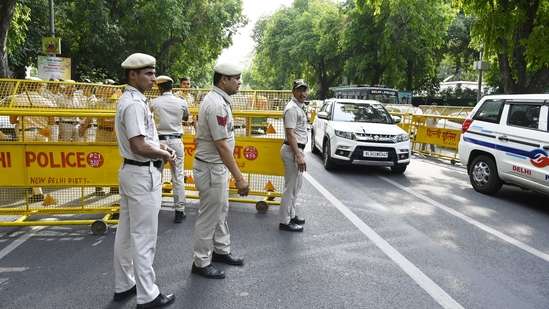In a significant breakthrough, the Delhi Police have successfully apprehended two alleged agents of Pakistan’s Inter-Services Intelligence (ISI) in a covert operation, dismantling a sleeper cell network that was reportedly active in the national capital. The secretive operation, carried out over several months, has raised serious concerns about cross-border espionage and internal security threats.
According to official sources, the intelligence and counter-terrorism units of the Delhi Police worked in close coordination with central agencies to track the activities of these operatives. The arrested individuals are believed to have been tasked with gathering sensitive information and destabilizing efforts through espionage and subversive activities. The operation culminated late last night when the suspects were apprehended in a coordinated raid at multiple locations across Delhi.
Investigators revealed that the sleeper cell network had established communication links with handlers across the border. The network was reportedly in the advanced stages of executing plans that could have compromised critical infrastructure and public safety. This bust comes amid heightened tensions between India and Pakistan, with both countries engaged in vigilant monitoring of espionage attempts and militant activities.
Delhi Police Commissioner emphasized the importance of inter-agency collaboration and continuous intelligence sharing in thwarting such threats. “This operation underscores the vigilance of our security apparatus and their commitment to safeguarding national interests,” he said in a press briefing.
Security analysts have noted that sleeper cells operated by foreign intelligence agencies pose complex challenges due to their covert nature and ability to blend into local environments. The dismantling of this network is a testament to the evolving counter-intelligence capabilities of Indian law enforcement agencies.
The arrested ISI agents are currently undergoing interrogation, and further investigations are underway to unravel the extent of the sleeper cell’s reach. Authorities have assured the public that all necessary measures are being taken to ensure the security of the capital and prevent any retaliatory threats.
This development is expected to have significant implications for India’s national security policies, particularly in the domains of counter-terrorism and border security. Experts suggest increased surveillance and enhanced intelligence operations will be prioritized to detect and neutralize similar threats in the future.



